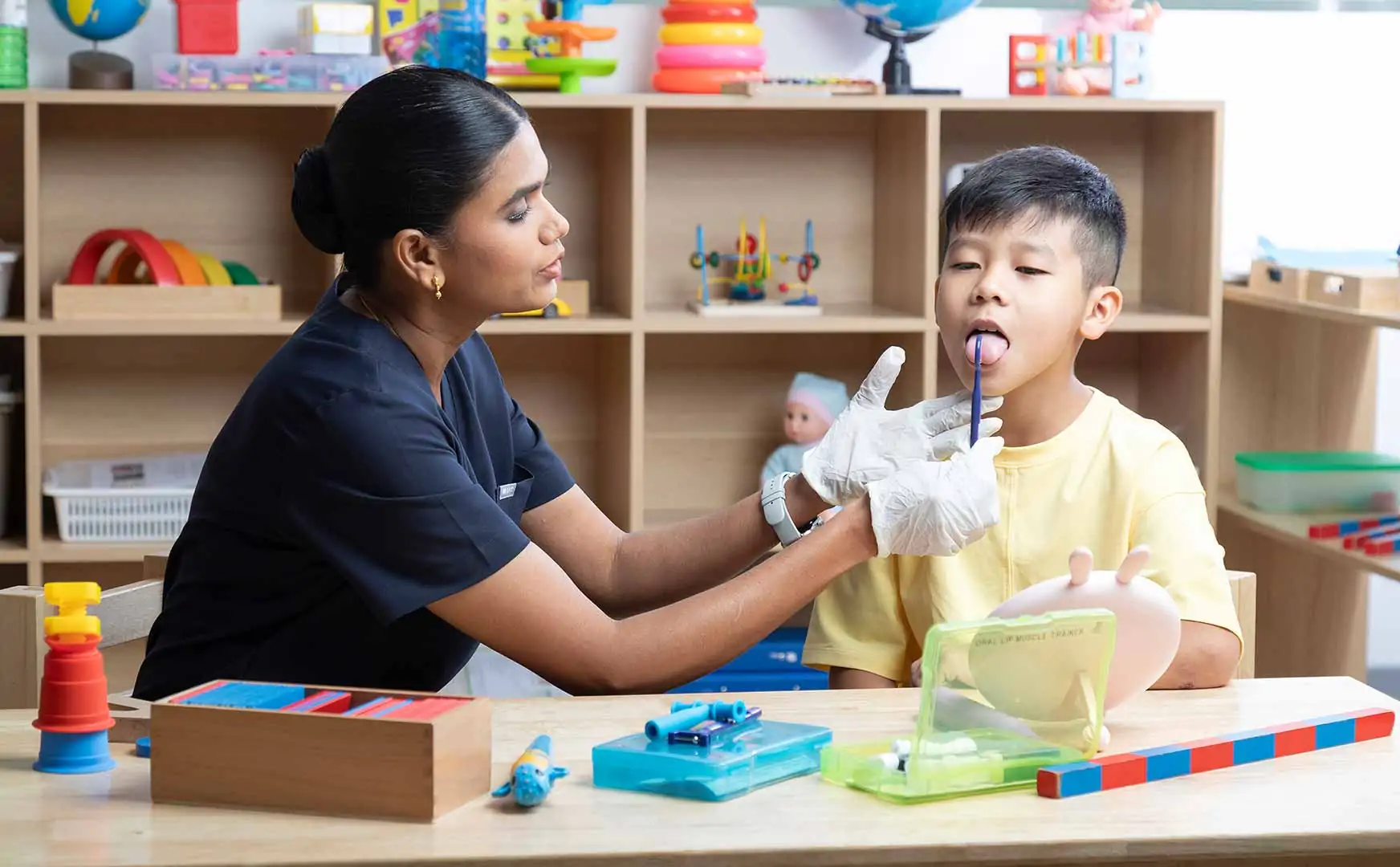When children begin speech therapy in Phnom Penh or anywhere in Cambodia, parents play a vital role in their progress. However, even with the best intentions, some parental habits can unintentionally slow down improvement. Recognizing and avoiding these common mistakes can make speech therapy more effective, helping children reach their communication goals faster and with greater confidence.
1. Expecting Instant Results
One of the most common mistakes parents make during speech therapy is expecting quick results. Speech and language development is a gradual process that depends on the child’s age, diagnosis, and consistency of practice. For example, children working on articulation may need weeks to strengthen their mouth muscles, while those with language delays may need months to build understanding and expression.
Parents should focus on small milestones rather than overnight transformation. Progress in speech therapy in Phnom Penh often happens in subtle ways — such as improved imitation, increased eye contact, or clearer sounds. By celebrating these small wins, families encourage consistent motivation and reduce frustration.
2. Comparing Your Child to Others
Every child develops differently, especially in communication. Comparing your child’s speech progress to another’s — even one receiving therapy at the same center — can lead to unnecessary pressure. Some children respond quickly to speech therapy, while others need more time due to factors like attention span, sensory needs, or coexisting developmental conditions.
Instead of comparing, parents should collaborate with their speech-language pathologist (SLP) to understand their child’s personalized goals. At OrbRom Center, therapists create individualized plans based on each child’s communication profile, ensuring therapy aligns with their pace and needs.
3. Not Practicing at Home
Speech therapy doesn’t end when the session does. One major mistake is assuming that progress happens only during the 45- or 60-minute therapy sessions each week. In reality, what happens at home matters just as much.
Parents can reinforce speech goals through simple daily routines — describing actions during playtime, reading aloud together, or practicing specific sounds while brushing teeth. Using ideas from top at-home speech therapy activities can help build consistency and confidence.
When families practice regularly, children begin to use their skills more naturally — turning therapy techniques into lifelong communication habits.
4. Interrupting or Correcting Too Quickly
It’s natural for parents to want to correct mispronunciations or grammar mistakes. However, over-correcting can discourage a child from speaking at all. For instance, if a child says, “I wike apple,” and the parent immediately replies, “Say it properly — I like apple,” it may cause stress or self-consciousness.
Instead, model the correct pronunciation gently: “Yes, you like apples! They’re delicious.” This technique — called indirect correction — encourages learning without pressure. Speech-language pathologists often use this strategy in therapy sessions to promote positive reinforcement and confidence.
5. Ignoring Emotional and Social Factors
Speech progress isn’t only about articulation or vocabulary — emotional well-being plays a huge role. Children who feel anxious, overstimulated, or unsupported may resist therapy or struggle to express themselves.
Creating a calm environment, maintaining predictable routines, and showing patience helps build trust. Parents can also support emotional growth through play and positive interaction. As highlighted in speech therapy and social-emotional learning, emotional connection is key to language success.
6. Not Communicating with the Therapist
Speech therapy is a partnership between the therapist, child, and family. One common mistake is not keeping the speech-language pathologist updated about changes at home — such as a new routine, school transition, or emotional stress.
Sharing these updates helps therapists adjust session goals or strategies accordingly. At OrbRom Center in Phnom Penh, open communication between families and therapists ensures that progress is consistent across settings — from the clinic to the classroom and home.
Parents should also feel comfortable asking questions about strategies or progress. When parents understand the therapy plan, they can confidently apply it during everyday interactions.
7. Giving Up Too Early
Some parents discontinue speech therapy when they don’t see fast progress, believing their child has “plateaued.” However, regression often occurs when therapy stops prematurely. Just like learning to read or ride a bike, communication skills need repetition and sustained guidance.
Speech therapy is not a one-time fix — it’s an evolving process that adapts as a child grows. Consistent attendance, even during holidays or busy school periods, is crucial. Families who stay committed often notice deeper and longer-lasting improvements in speech clarity, understanding, and confidence.
If your child seems stuck, discuss this openly with the therapist rather than stopping sessions. Adjustments in therapy techniques or home practice plans can reignite progress.
Conclusion
Parents play a powerful role in supporting speech therapy progress — but that power can be weakened by a few common mistakes. Avoiding unrealistic expectations, comparisons, inconsistent home practice, and poor communication can make a major difference.
By collaborating closely with your child’s therapist and creating a supportive home environment, you’re giving your child the best opportunity to thrive. If you’re looking for expert guidance in speech therapy in Phnom Penh, explore the evidence-based programs at OrbRom Center. Their team provides comprehensive support for children with speech delays, communication challenges, and developmental needs.
We are the only Preschool specialized on children with special needs in PhnomPenh.
- Internationally qualified teachers
- Cambodia’s largest sensory room
- Outdoor swimming pool
- Covered outdoor playground
📞 Phone: 077.455.993
Telegram Link: https://t.me/OrbRom








Leave A Comment